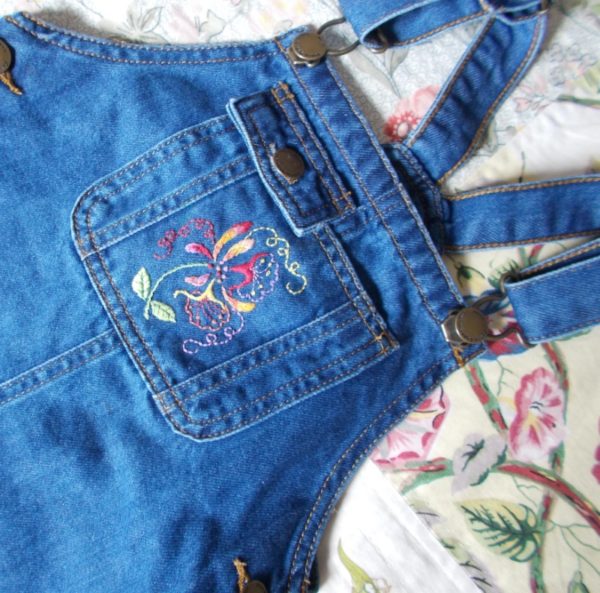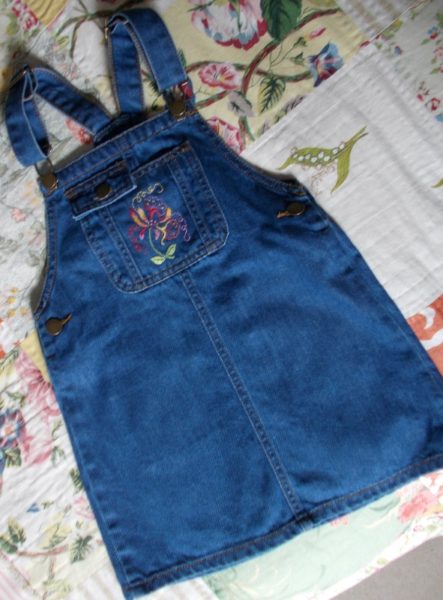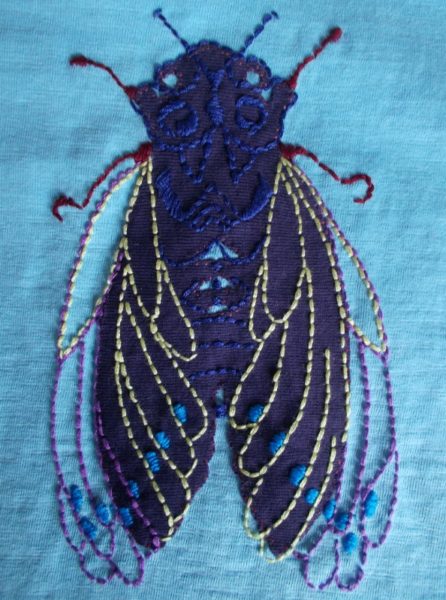
Embroidered cicada (hand embroidered by Mary Addison)
Last week plagues on both my current homes reached peak intensity. In London, the fight against clothes moths is ongoing, but I’ve beaten them before and I’m in no mood to let them win this time. Then, on my first night back in London I got horribly bitten, and realised battle must be joined on the cat flea front as well. Fortunately there was sufficient supply of their regular flea treatment drops to give them a dose each. Between us, Paige and I performed a series of clever pincer movements to catch each cat, one by one and by tea time all cats had been treated with no distress to cat or humans. (Paige is daughter No 1’s home help, child carer and generally all round handy-at-anything sort of girl).
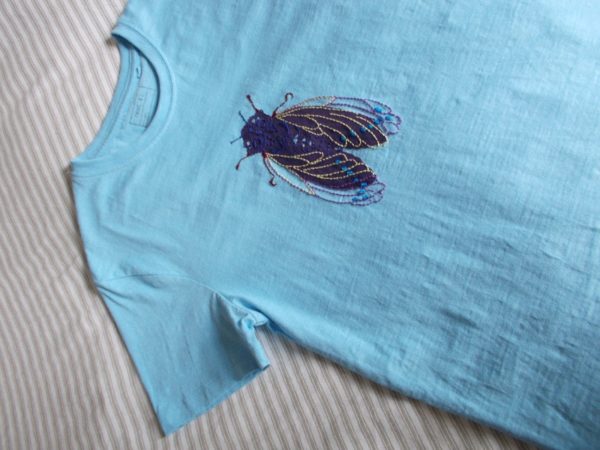
T shirt with embroidered cicada (hand embroidered by Mary Addison)
Back in Cheltenham, during the last couple of weeks my poor husband had been tormented by the cries of a young gull which had been sitting in the garden of the house next door. Both my husband and the neighbour had rung the RSPB and then the RSPCA but neither were helpful, said food should be left out and suggested that the bird would fly off when it was ready. Last weekend I had a peek at it over the fence and it looked a sad bedraggled creature as young birds often do but to my untutored eye its wings didn’t look anything like ready for imminent flight. A gull’s cry at the best of times is not a lovely sound but that of an abandoned infant is infinitely worse – and pathetically distressing when it sees an adult flying over the garden and tries hard to get its attention. Then this week, the cat went quiet and was nowhere to be seen. Later that day, the gull walked in through our french windows and took my husband by surprise. Obviously able to do a bit of nursery flying – as it must have got over the fence somehow – my husband opened the back gate which opens out on to a little alleyway and it obligingly left. The cat returned. Yesterday I thought I saw it on the chimney pot of the house behind us.
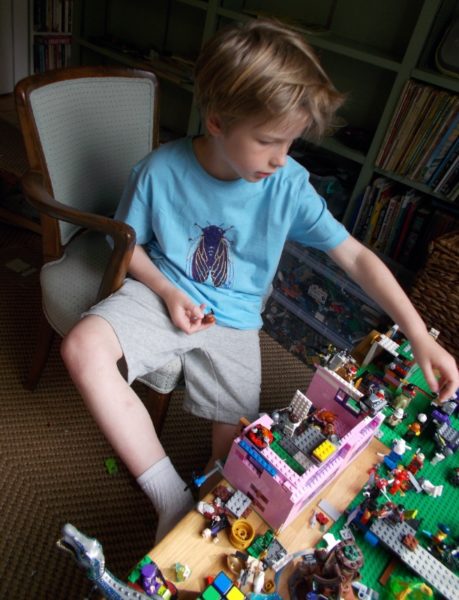
Boy in cicada T shirt
Not being sure we’d dealt well with our fledgling, we were comforted to read the following piece by Janice Turner in The Times of Thursday last. Gulls are so common inland in Britain now, we should apparently no longer call them all seagulls. Obviously, you can change their name, but not their behaviour,
Sulky gulls: In late July you often see shabby, confused figures wandering around Aldeburgh streets. No, not day-trippers from Norfolk but fledgling seagulls who’ve reached that difficult age. Too big for the nest, they haven’t yet mastered flight . But they can walk, so clad in scruffy, grey juvenile feathers they stalk the high street and sea front.
Their hunched, watchful, sulky countenances remind me of 13-year-olds in hoodies, permanently mortified at being alive. “What are you looking at ?” they glower if you catch one scavenging a dropped chip. Like human adolescents they get into scrapes they lack the wisdom to escape. A stranded teen-gull that had dropped into a garden with a high wall scrabbled to return to the roof . It looked too fierce to approach but if it could speak, it would cry: “I want my mum.”
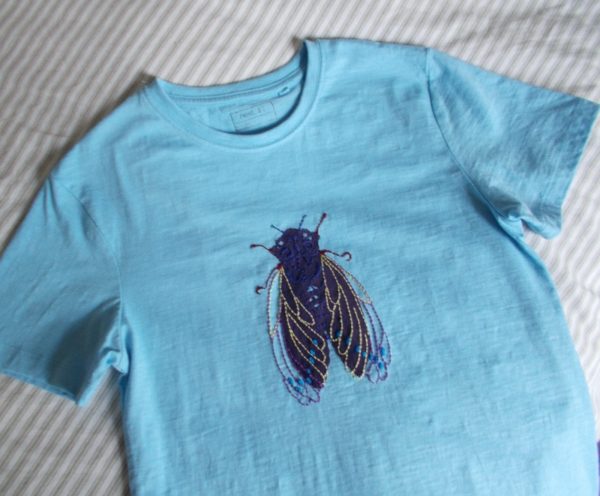
T shirt with embroidered cicada (hand embroidered by Mary Addison)
This weekend I finished an embroidered cicada on a T shirt for my grandson. Would that our garden had had the soothing sound of cicadas rather than the rasp of the orphan gull.


